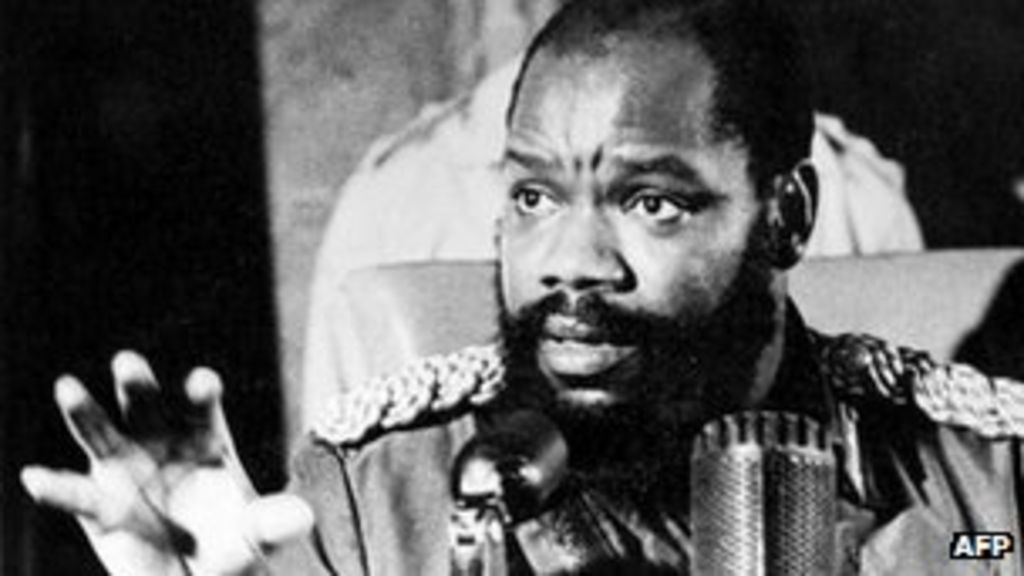Last Updated on November 3, 2021 by Spynaija
The Nigerian Civil War
The Nigerian Civil War started on 6 July 1967 and ended on 15 January 1970; the war was an ethnically based oil war fought between Nigeria’s government and the secessionist state of Biafra, which led to millions of lives lost, mostly of starvation.
Subcribe to Daily Giveaway: Subscribe to daily giveaway
Biafra represented the Biafran people’s nationalist aspirations, whose leadership felt they could no longer coexist with the Northern-dominated Nigerian federal government. The war resulted from political, economic, ethnic, cultural, and religious tensions that preceded Britain’s formal decolonization of Nigeria from 1960 to 1963. The UK and the Soviet Union were the Nigerian government’s main supporters, while France, Israel, and some other countries supported Biafra.

The Nigerian troops surrounded Biafra within a year, capturing the coastal oil facilities and the city of Port Harcourt. Within the two and half years of the war, there were about 100,000 overall military casualties, while between 500,000 and 2 million Biafran civilians died of starvation.
The Biafran War
Shortly after extending its blockade to include oil, the Nigerian government launched a “police action” to retake the secessionist territory. The war started in the early hours of 6 July 1967 when the Nigerian troops advanced in two columns into Biafra. The Biafra strategy had succeeded. The Nigerian government started the war; the East defended itself.
Travel ideas: Travel ideas
The Nigerian Army offensive was through the north of Biafra led by Colonel Mohammed Shuwa, and the local military units were formed as the 1st Infantry Division. The division was led mostly by northern officers. After facing unexpectedly fierce resistance and high casualties, the right-hand Nigerian column advanced on the town of Nsukka, which fail on 14 July, while the left-hand column made for Garkem, which was captured on 12 July.
What Caused the Nigerian Civil War?
The Immediate causes of the war in 1966 included ethnoreligious riots in Northern Nigeria, a military coup, a counter-coup, and Igbo’s persecution in Northern Nigeria. Also, control over the lucrative oil production in the Niger Delta played a vital role. Still, the primary cause, as reflected in a statement made by the Igbo Eastern Military Governor, Lieutenant Colonel Chukuemeka Odumegwu Ojukwu, was inter-ethnic domination, as he was quoted to have said: “The brutal and planned annihilation of officers of Eastern Nigeria origin had cast serious doubt as to whether they could ever sincerely live together as members of a nation.”
End Of The Biafran War
With increased British support, the Nigerian federal forces launched their final offensive against the Biafrans on 23 December 1969, with a major thrust by the 3rd Marine Commando Division. The division was commanded by Col. Olusegun Obasanjo, which succeeded in splitting the Biafran enclave into two by the end of the year. The final Nigerian offensive, named “Operation Tail-Wind,” was launched on 7 January 1970 with the 3rd Marine Commando Division attacking, and supported by the 1st Infantry Division to the north and the 2nd Infantry Division to the south.
The Biafran towns of Owerri fell on 9 January, and Uli on 11 January. A few days earlier, Col. Chuckwuemeka Ojukwu fled into exile by plane to Ivory Coast, leaving his deputy Philip Effiong to handle the details of the surrender to General Yakubu Gowon of the Nigerian Federal Army on 13 January 1970. The surrender paper was signed on 14 January 1970 in Lagos and thus came the end of the civil war and renunciation of secession.
The fighting ended a few days later, with the Nigerian forces advancing into the remaining Biafran-held territories met with little resistance.
When the war ended, Gen. Gowon said, “The tragic chapter of violence is just ended. We are at the dawn of national reconciliation. Once again, we have an opportunity to build a new nation. My dear compatriots, we must pay homage to the fallen, to the heroes who have made the supreme sacrifice that we may be able to build a nation, great in justice, fair trade, and industry.”
Read Also
- Top 10 richest people in Nigeria 2021 and their net-worth
- Top 10 Richest African Countries
- Top 10 Tallest Buildings in Nigeria 2021
- Top 10 Tourist Attractions in Nigeria
- The Most Beautiful Cities In Africa
- Top 10 Highest currencies in the world 2021
- Top 10 Most Developed Countries in Africa
Travel ideas: Travel ideas

Thank God am born into freedom
Educating!